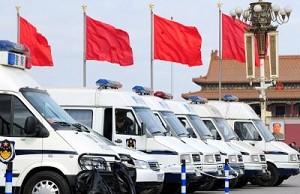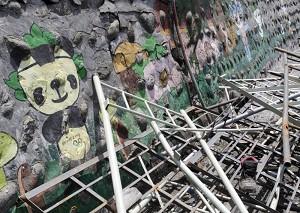China’s annual “Two Sessions”— the National People’s Congress (NPC) and the National Committee of the Chinese People’s Political Consultative Conference (CPPCC) session—will be held early March in Beijing. Due to the NPC’s discussion of the proposed list of ministerial candidates and the draft program of the State Council’s institutional reforms, the sessions will be extended for three days. The Second Plenum of the 17th CPC Central Committee was held the Monday before the “Two Sessions” to “set the tone.”
It is reported that the Second Plenum would pass the proposed candidates list of the leading personnel of national institutions and the views of institutional reform. The discussion topics include the proposed candidates of the national institutions’ leading personnel to the first session of the 11th National People’s Congress and the proposed candidates of the CPPCC National Committee’s leading personnel to the first session of the 11th CPPCC National Committee.
Zhao Dagong, a member of the Independent Chinese Pen Center told our reporters on Tuesday, “China is in fact controlled by a totalitarian party, and no other political parties are allowed to hold power. The Chinese Communist Party (CCP)’s proposals must be supported. Everyone knows it. The proposal list is turned over to the NPC, and NPC deputies generally vote according to the list. It is just a formality.” A Beijing politician said none of the CCP proposals has ever been vetoed by the NPC sessions because the proposals are, “passed by acclamation as long as there is applause,” and not by vote. Since 2005, Secretaries of local Provincial and Municipal Committees of the CCP have taken over the position of Chairpersons of the local Provincial and Municipal People’s Congress. A CCP officer explained that the whole purpose is, “To transfer the CCP’s voice to the NPC to make control easier.”
According to Radio Free Asia, the current NPC session will be held from March 5 to 18, a duration of 14 days, which is 3 more days than the 11 days the NPC session normally runs. Authorities asked the Chairpersons of the local Provincial People’s Congress to conduct a survey on their NPC deputies earlier on. They found that the issues raised by the NPC deputies would be very sharp this year, specifically in regards to demand of increasing funding for education, improving healthcare, increasing social welfare, and other specific requirements. Premier Wen Jiabao expressed his interest to listen to more ideas from the deputies during his tenure. Additionally, an expanded agenda for this year’s NPC session is another important reason to extend the session.
Prior to each year’s “Two Sessions,” Beijing authorities would issue various “restrictions.” For example, restricting the public from going to Beijing to petition, demolishing the petitioners’ village, prohibiting dissidents to stay in the capital or ordering them to stay at home, and so on. During the sessions, any kind of flying activities for sports, tourism or entertainment over the tourist attractions and the surrounding areas are prohibited by the authorities. The effective durations of “Beijing Entry Permits” for non-Beijing minibuses is shortened from 30 days to 7 days, and the permit for trucks is shortened to 2 days.
Zhao Dagong told the reporter, “We are all very nervous around the period of the ‘Two Sessions.’ Well, I’m not nervous. But the authorities seem to be because they need to put extensive monitoring on me. The pressure on me is that I can’t go to Beijing. They already talked to me about that before the Chinese New Year and the end of last year.”
We asked whether or not he was able to go to the upcoming Beijing Olympic Games and he replied, “No, I can’t even go to Beijing before the Olympic Games.”
To make sure that no emergencies occur in Beijing during the “Two Sessions,” authorities employed 500,000 people to help police with security checks last year, and even had the elderly of the Resident’s Committees wearing red bands on their sleeves in the streets as an attempt to maintain order. With the Beijing Olympic Games coming this August, the Second Plenum of the CCP has submitted the “Olympic Security Program” prepared by the Ministry of Public Security and the Armed Police for its members to discuss. The security program will be tried out during this year’s “Two Sessions,” so the March security checks will be of an unprecedented scale since the CCP assumed power.



